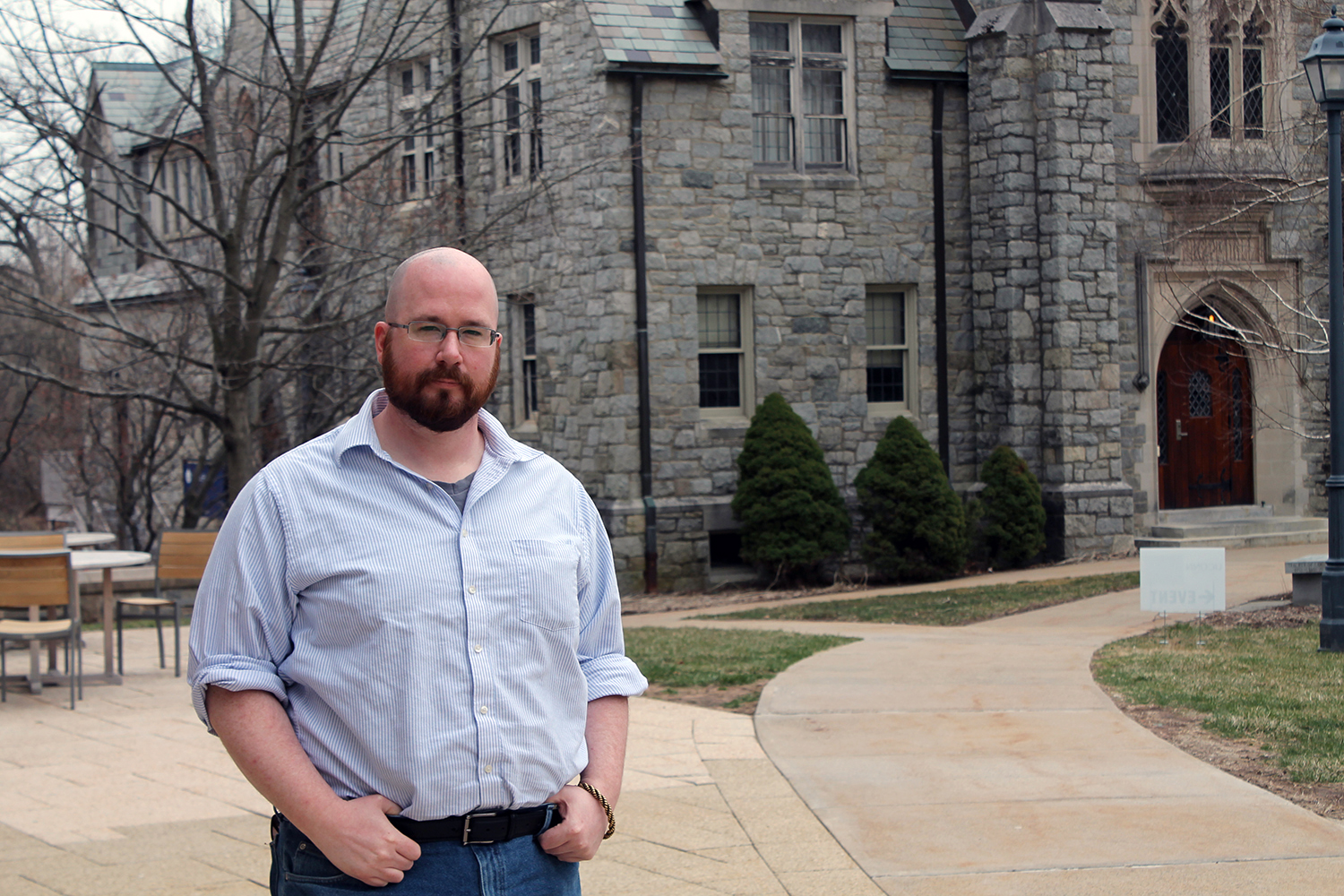Patrick Greenhalgh always knew he wanted to be a lawyer. What he didn’t know was that his journey to law school would take him to Afghanistan, Kuwait, South Korea and back.
Greenhalgh, who graduated Sunday with a JD from UConn School of Law, said his mother gave him a frank talk as he neared the end of high school. “She was very clear. She said figuring out the cost of college was on me. They didn’t have any money to help me with.”
Around that time Greenhalgh was approached by a recruiter from the U.S. Army. He remembers being impressed with the recruiter’s honesty about the process. He decided joining the armed forces was the best option to pay for college.
Greenhalgh grew up in Plainfield, Connecticut. In high school, he was drawn to public speaking and mock trial clubs, outlets for him to do what he liked best: debate. His debate background proved useful during his service, especially as an interrogator in Afghanistan.
In 2012, after nine years of service, almost four years of which he spent overseas, Greenhalgh left the military and attended the University of Connecticut. In 2016, years after he had first imagined himself there, he enrolled at UConn Law.
Once in law school, Greenhalgh struggled to find people with similar life experiences to him. His time spent in the military had opened his eyes to how big and hard the world is. Back in Connecticut, he felt disconnected from his classmates.
“The things I’ve done and the things I’ve seen are really indescribable in their horror,” Greenhalgh said. “Once you’ve seen that, it’s hard to understand why people around you are worrying about tiny stuff. It’s like the two realities exist in different worlds.”
Although Greenhalgh continued to feel slightly apart from some of his classmates, he formed a tight-knit group of friends during his law school tenure. The group is made up of fellow veterans, with whom Greenhalgh said he often more easily connects.
In addition to friendships with fellow veterans, Greenhalgh has served as president of UConn Law’s Veterans and Armed Forces Legal Outreach Society for the past two years. This year he also began serving as a student counselor to veterans.
Even though Greenhalgh ultimately found his place at UConn Law, he said he still feels uncomfortable talking to his classmates and other civilians about his service. He recalled some fellow students turning away in disgust when he described things he had done overseas.
“The way we view veterans in this country is really messed up,” Greenhalgh said. “The things I did while serving were my job. I did them because that was my job, I’m not sure people really get that.”
After graduation and once he takes the bar exam, Greenhalgh will begin working as a writing clerk for the Connecticut Superior Court in Middletown in October.
He is not sure what kind of law he wants to practice in the future. Right now, all he can think about is waking up the day after taking the bar exam.
“It will be my first real time off in over seven years. I’m going on a much-needed vacation.”



